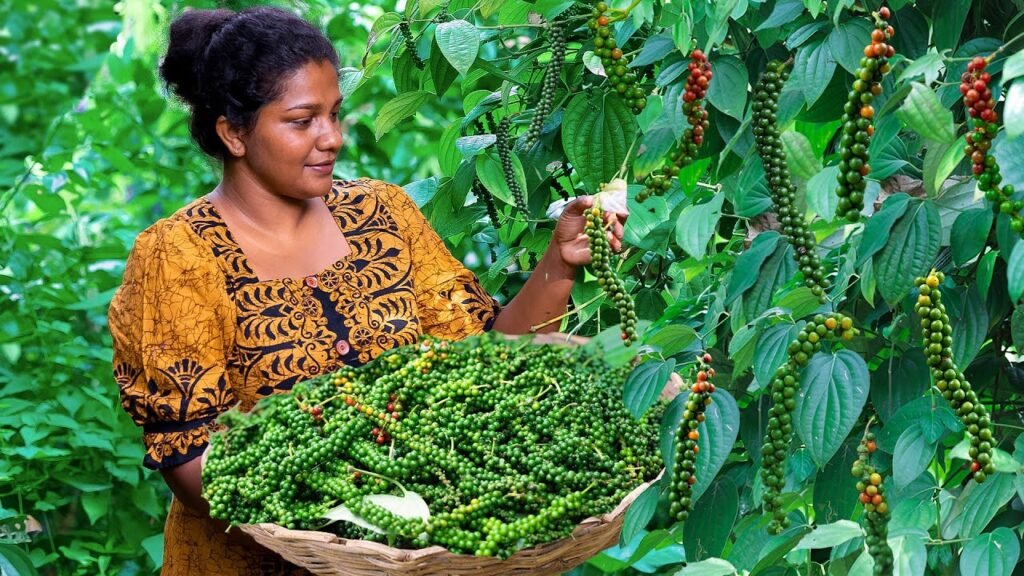
Economic Benefits of Pepper Cultivation in Sri Lanka

Pepper is one of the most extensively utilized spices, not only in Sri Lanka but also around the world. South Asia is home to the pepper crop, which originated in South India, according to historical accounts. Pepper is a valuable spice that enhances the flavor of food and also possesses significant medicinal properties.
Although the Malabar Coast of India is thought to be the birthplace of black pepper, Sri Lanka is also home to several wild pepper varieties. It is thought that Sri Lanka is also the birthplace of pepper given the high genetic variability of P. nigrum L. found there and the existence of wild cousins of pepper.
Since the beginning of the commercial black pepper trade, certain commercial black pepper cultivars have also been brought to Sri Lanka. Local black pepper growers use MB12 and GK 49 because they are high-yielding and of excellent quality.
The lowland and mid-country wet zones are the most suitable areas for pepper cultivation. Accordingly, pepper cultivation is most popular in the Matale, Monaragala, Kurunegala, Kandy, Kegalle, Badulla and Ratnapura districts.
In addition to enhancing the flavor of food, pepper promotes digestive function by stimulating the secretion of hydrochloric acid in the stomach. It contributes to the optimal functioning of the body’s metabolism.
Pepper is utilized in Ayurvedic medicine for the treatment of coughs, fevers, and excess phlegm, and is also recognized for its potential anticancer properties due to its antibacterial effects. There is significant global demand for these pepper products, driven by their use as food additives and their recognized medicinal properties.

Pepper plays a significant role in supporting economic and social development by creating employment opportunities and providing high income for workers, especially in agricultural countries with suitable soil for industrial crops. Its cultivation can help reduce poverty and improve living standards, particularly when integrated with intercropping models like combining pepper and coffee, which enhances yield, quality, and land use efficiency. Additionally, black pepper is a vital ingredient in medicine, the flavoring industry, and as a common spice in everyday cooking.
This enables farmers in Sri Lanka to assess the suitability of pepper cultivation and allocate greater focus to it, given the consistently favorable market prices throughout the year.




